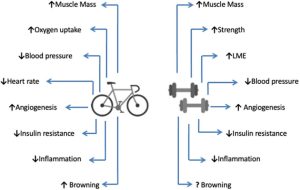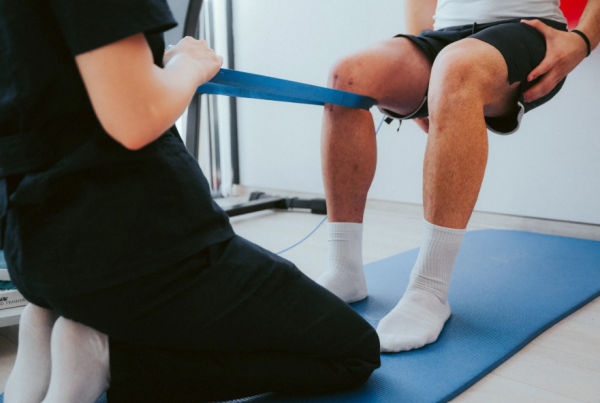If you’ve ever known somebody with cancer, you will likely be familiar with the physical tolls of battling the disease. Often, over just a few weeks we are forced to standby and watch our loved ones drastically change shape as their muscle mass disappears.
Despite affecting the majority of cancer sufferers, up until recently, this side effect has been poorly studied. Thankfully, new research is emerging that looks further into what goes on in the body that leads to this drastic muscle wastage and importantly – what we can do to help. Excitingly, exercise has a lot to do with it.
“Cachexia” explained
Cachexia is the clinical term used to describe this breakdown of muscle mass. Looking into what exactly is going on in the body, cachexia has been described within literature as the result of “metabolic chaos”. . . The combination of cancerous cells, increased inflammation, decreased insulin sensitivity, reduced nutrient uptake and an unbalanced metabolism all come together to cause drastic breakdown of muscle mass (and often fat mass too).
Physical consequences are only a portion of the burden when you consider the mental health implications of this condition. Debilitating weakness and fatigue means that those experiencing cachexia find themselves unable to partake in many daily tasks, let alone the recreational and social activities that are important to them.
Not only is cachexia itself debilitating, but it also reduces the effectiveness of chemotherapy, making for a vicious cycle. According to the National Cancer Institute, it is experienced by 80% of people with advanced cancers and causes 20% of cancer-related deaths.
Tackling cachexia
According to research, there is no standardised treatment for cachexia in cancer patients. As with many complex conditions, it currently involves treating the isolated physiological symptoms where possible, via modes such as medication and supplementation.
The good news is that we are now on the way with some things becoming clear. Included is that early intervention is paramount to prevent or reduce the impact of cachexia and that exercise should definitely play a role in this.
If you think back to what causes cachexia and then refer to the image below, you will find that exercise induces many of the opposite effects. Importantly, exercise has been found to attenuate the effects of cancer-cachexia through mechanisms such as increased anabolism (maintaining muscle mass), improved insulin sensitivity and the management of inflammation. Not to mention the positive psychological impacts that come from both the exercise itself, and the ability to maintain function.

(source: Leal, L. G., 2021)
All exercise-based recommendations so far emphasise early intervention. Being proactive means maintaining physical fitness and delaying muscular decline early in someone’s cancer journey. Getting this head start not only appears to slow down the onset of cachexia, but it is apparent that exercise interventions become more difficult as the condition progresses.
Watch this space!
Research has only just scratched the surface in this space, with multiple big studies set to come out any day now. This includes the long-awaited MENAC trial, which looks to combine medication, nutrition and exercise as an early intervention for cancer patients, to see how it affects the onset of cachexia.
We are always keeping an eye out for new research and this is an area we are particularly interested to keep tabs on. Not to worry, we will keep you well informed!
–
References:
- CTG Labs – NCBI. (n.d.). https://beta.clinicaltrials.gov/study/NCT02330926
- Leal, L. G. (2021, February 4). Exercise Training as Therapeutic Approach in Cancer Cachexia: A Review of Potential Anti-inflammatory Effect on Muscle Wasting. Frontiers. https://www.frontiersin.org/articles/10.3389/fphys.2020.570170/full
- Treating Cancer Cachexia: Progress Looks Possible. (2022, August 23). National Cancer Institute. https://www.cancer.gov/about-cancer/treatment/research/cachexia
Author: Tessa Nielsen
Clinical Exercise Physiologist and Content Creator at Specialised Health
#exercisephysiology #exerciserehab #rehabilitation #lifeinsurance #incomeprotection #ctp #workcover #mobile #mobileexercisephysiology #fatigue #mentalhealth #cancer #musculoskeletal #injury #pain #physio #physiotherapy #Sydney #Brisbane #Melbourne #Adelaide #Auckland #Waikato #BayofPlenty #Wellington #Otago #Christchurch



